Why Are Pitbulls So Clingy? (How To Deal)
Do you ever feel like you have an extra shadow? Or like no matter where you are in the room you get the feeling that you’re being watched? Chances are you don’t have a ghost in your house, you actually have a Pitbull!
These guys can be off the scale with how clingy they get. You think you’re bringing home a tough dog who will help keep you and your house safe but instead find yourself with a clinger that insists on trying to sleep under the covers with you.

If any of this sounds familiar, you’re not alone. Pitbulls have gained themselves a bit of a reputation for being on the polar opposite end of the spectrum to independent pups. If they were humans they would require intense hand-holding so they can be sure you’re always where they need you to be.
Now you know you’re not alone if you have one of these Pitties in your home, there are still a few more questions at hand. Should you be worried? Is it a sign of a more severe behavioral issue and how do you go about stopping it?
Are Pitbulls More Clingy Than Other Breeds?
Pitbulls may not be a recognized breed by the kennel club but instead, refer to a group of dogs who share similar traits. Most people use Pitbull when they’re talking about the American Pitbull Terrier. A medium breed that is lean and athletic.
They share similarities with the American Bulldog and Staffordshire Terrier but are by far the more athletic-looking of the bunch. Pitbulls are active, working dogs that were initially bred for bull-baiting. They needed to be able to move quickly but also have the muscle behind them to bring down a bull.
As the sport fell out of popularity, Pitbulls are bred now for a variety of reasons, namely guarding and companionship. While that in itself doesn’t make the Pitbull more clingy than other breeds, a dog bred for companionship or to be so loyal to their owner they would want to protect them is going to want to be near them a lot of the time.
Other breeds without this protective instinct like the Jack Russell Terrier are less likely to show these behaviors because it doesn’t align with what they were bred for. This is why Pitbulls are more likely to be clingy with their owners than other breeds.
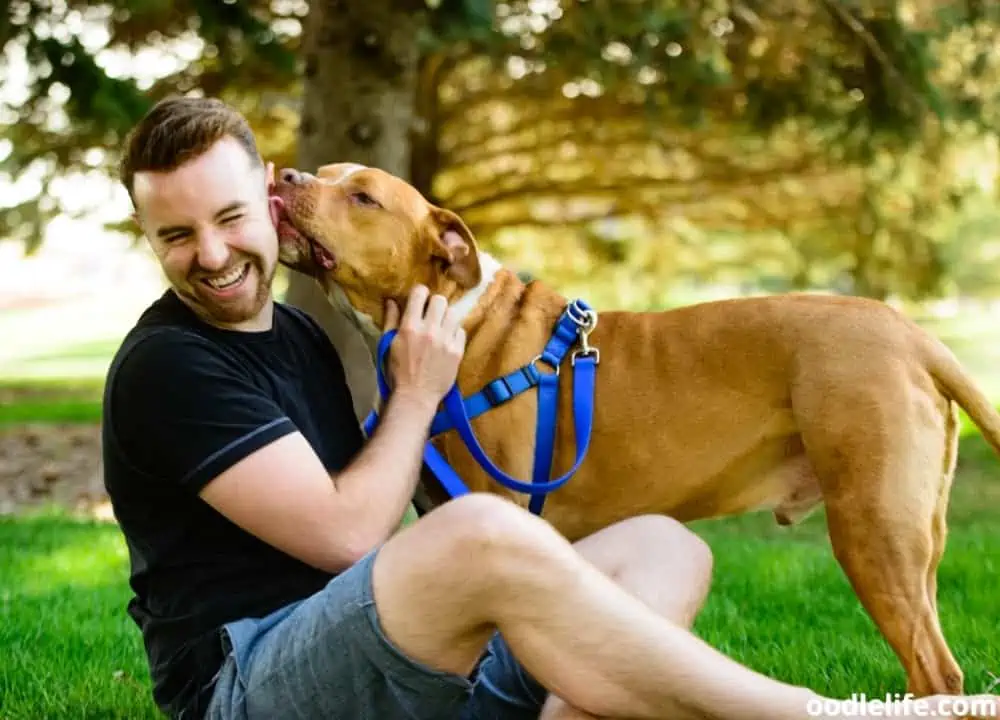
Should You be Concerned About a Clingy Pitbull?
In short, Pitbulls are very commonly clingy pets and unless it annoys you personally, in which case you might want to consider a more independent breed, there’s nothing to worry about. Some dogs enjoy being close to their owners and feel involved in their day-to-day routines. Just like some dogs will choose to rest against your feet or on your lap instead of their purpose-bought dog bed on the other side of the room.
It’s very natural for dogs to want to be close to us, especially breeds that we have selected as companions or guard dogs.
Clinginess only becomes an issue when they’re unable to cope without us. When a dog is distressed by their owners leaving them, this is called separation anxiety or separation-related behavior. Only then does a clingy Pitbull become a concern.
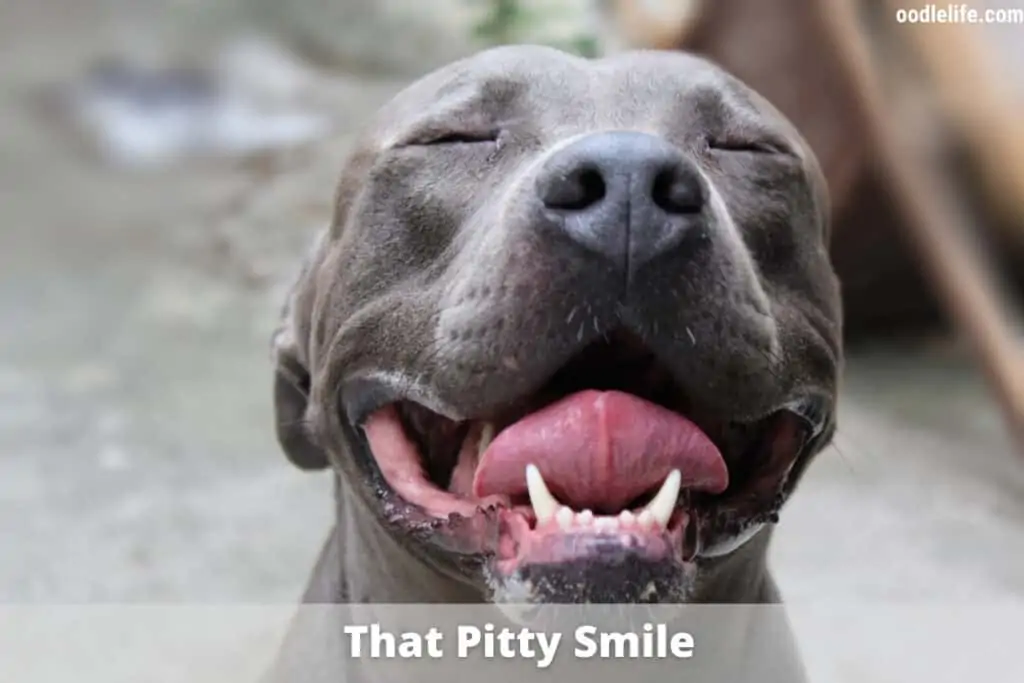
What’s the Difference Between a Clingy Pitbull and One with Separation Anxiety?
Clingy dogs will follow you around the house, they may insist on sleeping with a paw on you to help them feel safe but it shouldn’t be much of an issue. The worst thing about a clingy dog is only in the way we perceive them as an annoyance sometimes when you’re tripping over them when you’re trying to walk through the kitchen.
Separation anxiety is a behavior that is much more harmful to your dog, both mentally and sometimes physically if they’re severely distressed. Dogs can be clingy and want to be near us all of the time but it only becomes separation anxiety when they find it stressful being apart from you.
Usually, a dog will show signs of separation anxiety from a young age. Genetics plays a large role in how our dogs behave so many of these behaviors are simply part of their genetics. That isn’t to say we can’t still treat the behavior and help them overcome it but it just means that sometimes we are not a controlling factor in their behavior.
It’s not your fault if your puppy develops separation anxiety.
It can sometimes occur later in life if your dog goes through a major change or something traumatic. Moving house, accidentally getting lost, or anything similar can give them anxiety and become worried when they’re away from you.
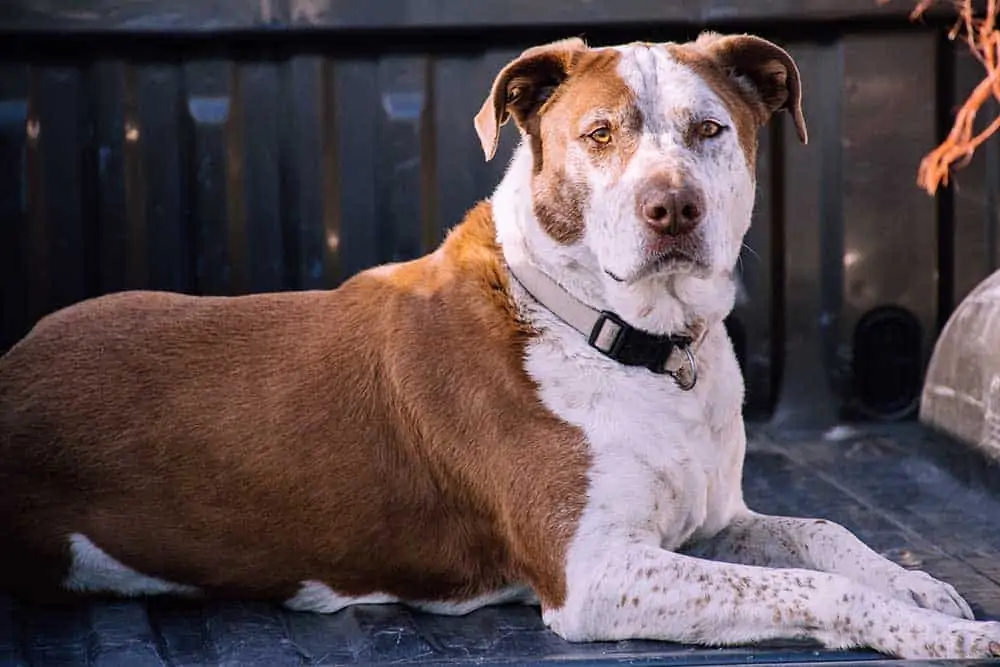
Symptoms of Separation Anxiety
Separation anxiety can be the cause of a number of behaviors that range in how destructive they are. It’s not always dogs eating through doors to try and find you. Sometimes some behaviors can go unnoticed and yet still be very distressing for your dog.
Here’s a list of behaviors that can be symptomatic of separation anxiety in dogs:
- Urinating and defecating when left
- Coprophagia
- Staying by the door
- Shaking
- Repetitive behavior – pacing
- Crying, howling, or barking
- Vomiting
- Chewing and destructive behavior
- Trying to escape
- Self-mutilation
The behaviors can range from minor to severe depending on the level of distress being left alone causes them. Some dogs may just cry or wait by the door while others will overgroom their legs until they get sores or try to break through windows to get to their owners.
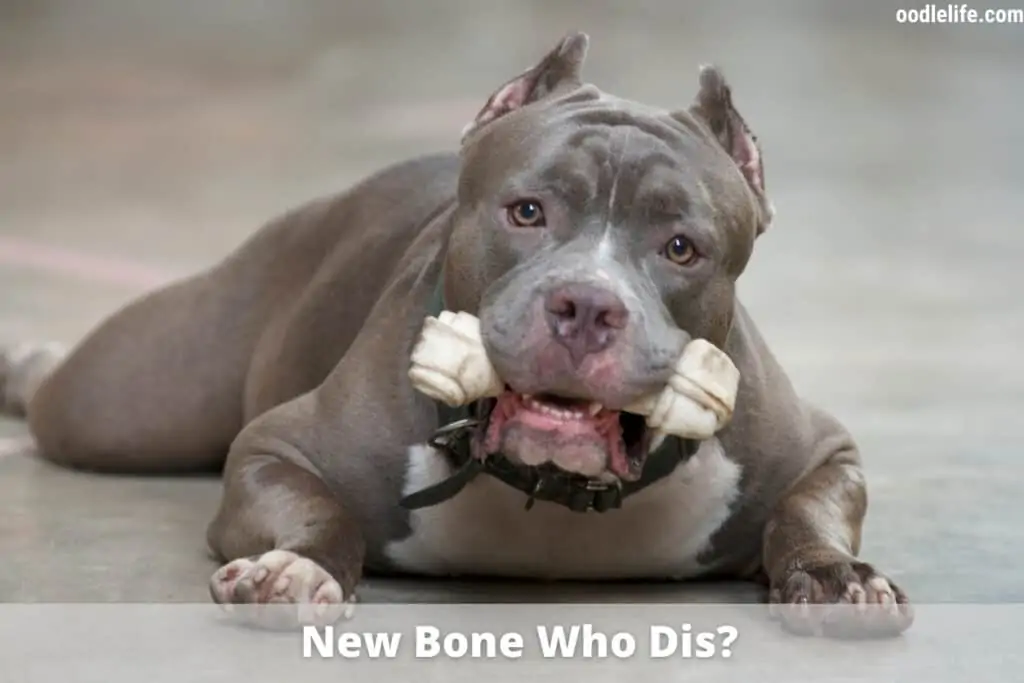
How to Make Sure Your Pitbull is Comfortable Being Left Alone?
If you’re not sure how your dog copes with being alone and you’re worried they may be the sort of dog to suffer quietly while they’re feeling anxious, you can rule out some of the more moderate to severe separation-related behaviors quite easily. If you come home and all of your furniture is intact, there’s no mess or destruction then you can at least rule that out.
If you have neighbors, you’re likely to have been told if your dog is howling or barking for long hours when you leave. You can also try leaving them and listening at the door for a few minutes if you suspect they might be vocal after you leave. If you come home and your dog has an excessive amount of saliva in their coat, this could be a symptom of over-grooming or salivating if they feel like they might vomit from the anxiety of being left alone.
If your pup doesn’t have any of these obvious signs, if you really are curious to see what your dog gets up to when you’re not home, there is a broad range of pet surveillance cameras you can invest in to check on your furry friend. The cheaper, basic models will usually record for thirty seconds to a minute when they’re triggered by noise or movement as well as having a live feed. Other brands allow you to talk to your dog over an intercom or even dispense treats at the push of a button!
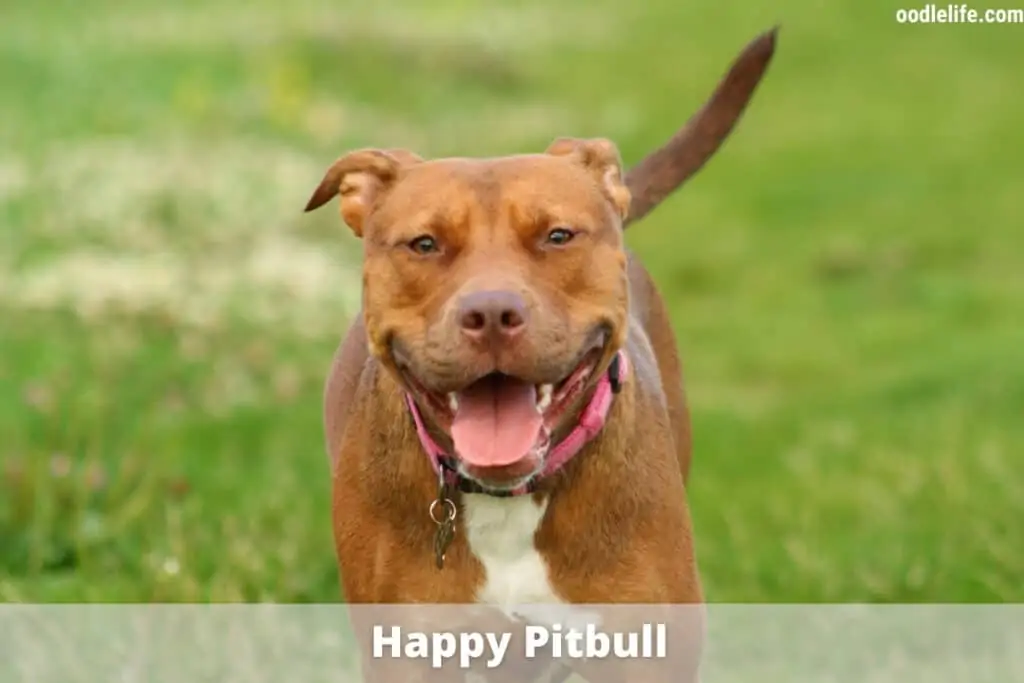
How to Help Your Pitbull be More Independent ?
If your dog is uneasy being left alone, there are a number of ways you can help reduce this stress. When I’m stressed, I know I enjoy distracting myself with things to keep my mind off them. In a similar way, we can give our dogs things to do while we’re gone so they don’t get the opportunity to worry about it.
Food enrichment is a great way to distract your dog. Things like snuffle mats, Kongs, and homemade enrichment are a great way to keep your dog busy while you’re away.
Some dogs benefit from crate training to give them a safe space to go to when they’re feeling anxious. If you ever needed to move house but their familiar crate could go with them, this would comfort them. You can leave items of clothing you’ve worn for them to sleep on and play background music or leave the tv on for them so they’re not hyper-aware of every little noise going on outside.
Some dogs who struggle with separation anxiety can even benefit from medication so if you’re worried about your dog when you leave, a visit to the vet is worth considering to see if they can help.
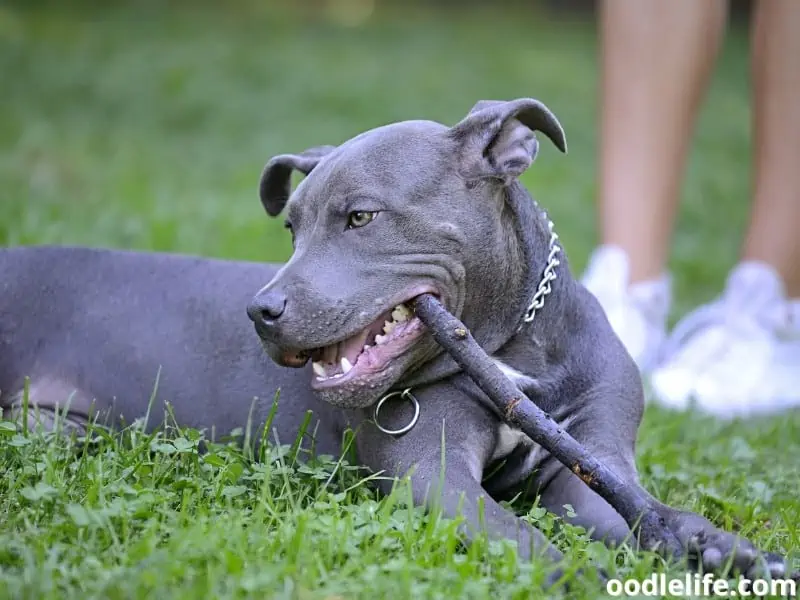
Conclusion
Sometimes we breed traits into dogs for a very clear reason. We breed from the best Golden Retrievers who are best at retrieving things. The Border Collies who instinctually know to gather flocks of animals and keep them together.
Some Pitbulls are also extra clingy when they are pregnant.
Sometimes these breedings come with other traits, side effects even. As we bred the Pitbull increasingly for their loyalty, we seem to have bred a dog that not only wants to be around us but needs to be so it’s no surprise that they become very clingy housemates.
While your dog wanting to be close to you isn’t an issue in itself, it can become an issue if they start to feel unsafe and worry when they’re not with you. Provided your dog is still happy and comfortable when you leave them for periods, there’s nothing to be concerned about but if they do get anxious while on their own there are plenty of things you can do to help them get used to it.